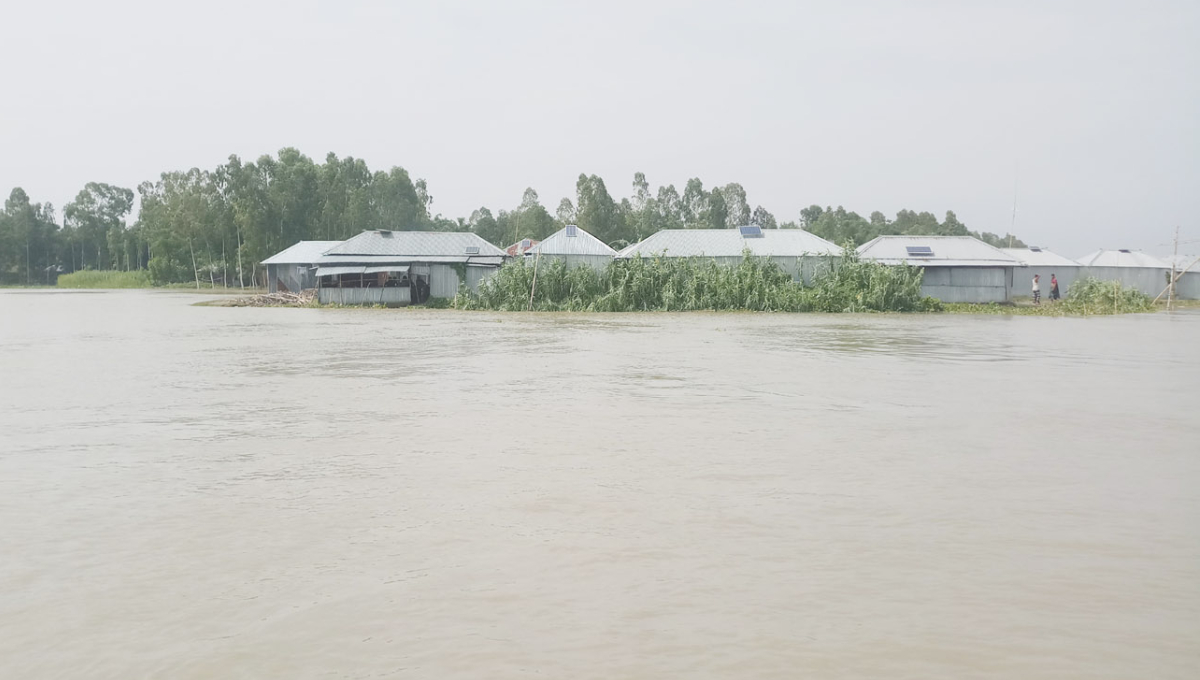- Nayadiganta English Desk
- 26 July 2020

International Farakka Committee (IFC) in a statement on Saturday said that the cycle of flood and drought is increasingly becoming destructive in Bangladesh because of disjointed and unsustainable management in the upstream of transboundary rivers, and the collapse of dams and barrages due to their inefficient management, UNB reports.
Expressing serious concern over the devastating floods that have come down the Teesta and the Brahmaputra Rivers, the IFC has urged the government to strengthen dredging and river training activities to increase the water conveyance capacity of Bangladesh’s rivers and at the same time initiate a move for a lasting solution of the flood-drought cycle through basinwide integrated management of all common rivers between India and Bangladesh
The statement signed by IFC New York Chairman Atiqur Rahman Salu, Secretary General Syed Tipu Sultan and Secretary General, IFC Bangladesh President Prof. Jasim Uddin Ahmad, and Senior Vice President Dr. SI Khan, and IFC Coordinator Mostafa Kamal Majumder, said the natural disasters have been experienced this year due to breaches of dams and barrages at upstream portions (i.e. in India) of the Teesta and the Brahmaputra.
The Supreme Court of Ireland in a recent landmark judgment has held the management of two dams responsible for devastating floods in the year 2009.
Reports published in India also show that mismanagement of dams has exacerbated floods in different areas at times. Bangladesh being at the downstream of common rivers face their adverse effects but the people and the government can do nothing about this.
IFC thus demands steps for decommissioning of all harmful structures on rivers including the Farakka and the Gazal Doba barrages, said the statement.
Successive floods coming from the Brahmaputra and the Teesta have caused huge devastations in Bangladesh affecting a total of 27 districts so far. Water has entered homes in the district town of Sunamganj.
Marooned people in the affected districts are facing hunger as they do not have space to cook food. Serious drinking water crisis has emerged as hand tubewells are submerged in flood water. Wet season vegetable fields have perished.
Strong current of water has washed many paved roads and embankments. People are in dire problems with their livestock animals. Government’s relief activities need to be strengthened to mitigate the sufferings of the people.
IFC believes that the government should, alongside its relief and rehabilitation activities, take an initiative for moving towards basinwide sustainable management of all common rivers from their points of origin to their downfall in the sea to free the country from the cycle of floods and drought on a lasting basis, said the statement.









